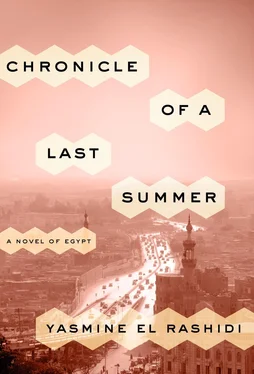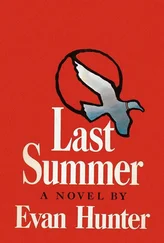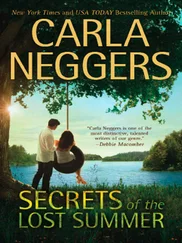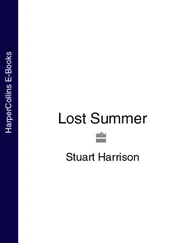I maneuver myself through the cars that are paused at an angle, waiting midstreet for takers. It’s midday in the summer heat, and tourists are scarce. Travel warnings are reissued for Egypt each month. I spot a couple coming out of the mosque with backpacks, she with a scarf draped lightly over her head. I walk towards the pavement. The call to prayer filters in somewhere from a distance, echoing, one muezzin mimicking the next. No matter what time of day it is, there always seems to be the chant of prayer. An old man, frail, in a paper-thin white shirt, leaning over a cane, shuffles in my direction. I dip into my pocket and pull at the corner of a five-pound note. I scrunch it into my hand. I watch the man as he moves towards me. He doesn’t look up, and people clear the way, moving from his path. Most pedestrians are this way, they walk, they cross, they move in the direction they are going without looking up, or to either side. He walks right by me, not raising his head. I turn around, watch him, then step forward towards the alley. It is lined with cavities, stalls, layered with brightly colored T-shirts, socks, bras, underwear, galabias, scarves, ties. Some of the things are made locally, but most of them, more and more, are from China, shipped across the world to accumulate in homes as junk. SpongeBob T-shirts. PedEggs. Wind-up dolls. Padding the walls of one stall are mattresses, lined, piled, straight, at an angle. Two boys lie around playing Nintendo. In another, mesh sacks overflow with Egyptian cotton. This was the founding street of Cairo. It’s hard to stop, to browse. What remains of its width fits two people and the bustle is intense. To pause means to obstruct the entire one-kilometer stretch, from one side of the Old City to the other. Music filters out of a crackling radio somewhere, Quran plays like a drone in the background. When I look up, I see the glistening silver dome of the Citadel perched on a limestone rock above the old city. I pause and then sidestep into a shop. Makhazin Sono Cairo, I say. The man gets up from his stool. Sticks his head out of his stall. Points to a line of neon plastic beach balls hanging from one shop. Gives me directions. I thank him, bowing my head. He asks if I will stay and have a glass of tea. I thank him again. Something cold to drink? Thank you. You don’t like our tea? It’s not that. Give us the opportunity to host you. Thank you, but I have to meet someone. He laughs. In a breathing space between people I step back into the moving crowd. I mimic the steps of the woman before me. In her I find my pace.
The storeroom of Sono Cairo is a shuttered garage space on an offshoot of the once-street-now-alley. A young man sits on the pavement. A cigarette is perched behind his ear. He seems to know who I am. Mohamed, he says. Hag Ahmed told me to be at your service. I nod my head. Thank him. He gets up, pulls at the waist of his sagging jeans. Turns. With all his force, he pushes up the corrugated metal shutter gate. Dust blows onto both of us. We turn our heads. I shield my eyes with my arm. Sorry. You’re the first person to come here in years, he says. No worries at all, I say. I dust myself. We step forward into the dark. A single lightbulb hangs from a bare wire. A flyer has been pushed in the space between the floor and the shutter. I bend and pick it up. He looks. His laugh is like a smirk. I can’t tell if it’s one of ridicule or disillusionment. The flyer is denouncing Morsi’s ouster, calling for solidarity with the democratically elected government and legitimate president. I take Mohamed in, with his scraggly beard, and wonder what his views might be. I say nothing and begin sifting through boxes, piles, stacks of old vinyl. Dust coats everything. Mohamed hovers nearby. I feel him. He shifts from one foot to the other. Watches me. I keep my head down, leafing through records. Our silence seems to be on pause. He volunteers. By the way, I am not a Brother, but I supported Morsi. All this area we supported Morsi. They used to do good for us, the Brothers. They helped us a lot. Financially, I mean. But we were going down a bad path. I have become weary about engaging in political conversation. Hopefully good will come, I say. I turn my head down and continue flipping through the stacks. He stands over me for a minute, then moves to the other side of the room. Just so you know, the Brothers would have destroyed this storeroom and all these records had they stayed in power. Music is a sin for them, you know. Where in the Quran does it say music is a sin? For them it was a sin. They were going to teach us about our own religion? He walks back to me holding a record. With the sleeve of his shirt he dusts it. He reads. It’s one of Umm Kulthum’s rarest. They printed only 850 copies that were quickly taken off the market. Someone criticized her voice. They compared it to a young and upcoming male singer. Mohamed tells me she’s his favorite singer of all time, and also his idol. I wonder if he knows she loved women. I know of the record in his hands but have never heard it. It’s a collector’s item, sold for hundreds of dollars online. He tells me I can have it for one hundred pounds. I tilt my head and consider bargaining, then put it in my pile. We talk about music and what I’m looking for. I pick up an old gramophone record of Asmahan. This, I tell him. He laughs. You know your music well. That’s a rare one. He is surprised that someone of his generation would want vinyl. He tells me the revolution has connected us to a past that preceded us. I nod, tell him I’ve gone back into our history books to understand. I’ve read everything. I can’t believe all this I didn’t know. You might not believe me, he says, but I have too. He’s learning that history is repeating itself. We talk about Nasser. The first revolution. 1919. The Wafd revolting against the British. It wasn’t really a revolution, he says. It was a popular uprising. I raise my eyebrows. But it was a revolt, I say. But there wasn’t a change of a system. The country didn’t completely change. The British didn’t leave until years later. So what is a revolution? I ask. 1952 . But it was also a coup? He shakes his head. It can only be called a revolution. Could it have been both? People didn’t take to the streets, it was just one system of power ousting, usurping, another. That’s a coup? Yes, he says, but it was against something that didn’t represent the people, so it was a revolution, for the people. Then 2011 was the same? I ask. That was a different kind of revolution, he says. There are different forms of revolution. But in the end all that happened is the army forced Mubarak to step down, as in ’52? The people forced him out, he says. But the army also wanted that? They didn’t want Gamal to succeed his father. They might have scripted this whole thing, January 25 . He pauses. I offer: And 2013 was no different, really, except that millions and millions more came out.
We talk about 2011.
2013.
Does it matter if the people’s movement calling for Morsi’s ouster was quickly propped up by the state? In the end it was the people’s desire, a sincere expression of what they wanted. He tilts his head and thinks for a long time. He isn’t sure. It’s something he feels conflicted about. I look into his eyes. I nod. I understand, I say. He shares with me his life story. Hours pass. I leave the store with fifty records. We agree I’ll come back next month. I tip him. He refuses. I insist. He accepts. He tells me the storeroom is mine.
I catch a taxi back in the direction of home. I ask if we can make a stop at the Anglo Salaam Hospital. I’ll slip in for just a few minutes, and then we’ll continue. You can keep the meter running. He tells me he is at my service. Leans over, turns the meter on. It jumps to five pounds. The starting price is meant to be two and a half. I say nothing, make a mental note to keep my eye on it. Taxi drivers speed their meters up, the rest of us slow things down — the electricity meter, the gas meter. It’s the only way to trump the government’s stealing. It costs fifty pounds to slow your meter to save five hundred. We drive past the Azhar Mosque and curve around, up past Azhar Park, which was once a garbage dump, the largest in the city. To turn it into a park, they emptied eighty thousand truckloads of garbage. I ask the driver if he knew that. He brings his children here every month, he says. But they go the back way, from the door that costs fifty piastres entry, not the one on the main street. That one is for the rich, he says. The ticket is for five pounds. Are you married? he asks. I am not. How old are you? I lie. Why are you not married? I mutter about circumstances. He peers up to his mirror and makes eye contact. I look away, and he turns on the radio. Someone is talking about bilateral relations with Ethiopia and the historic feat of the new government in reaching a deal on the new dam. It marks a groundbreaking era. Egypt and Ethiopia are one, the man says. God save Sisi.
Читать дальше

![Маргарет Миллар - Rose's Last Summer [= The Lively Corpse]](/books/384369/margaret-millar-rose-s-last-summer-the-lively-c-thumb.webp)










